The International Advisory Committee is comprised of academic scholars, private consultants, and organizational representatives from Australia, Canada, New Zealand, Sweden, and The United States. This committee meets bi-annually via teleconference, where participants share their regional-specific experiences through round table discussions on various topics, as well as providing general updates to the research team. The minutes for the teleconferences are available, here.
 Simon Brascoupé
Simon Brascoupé
Chair
Carleton University, Canada
Adjunct Research Professor & Former Chair of the CIHR Institute of Aboriginal Peoples Health Advisory Board.
Simon Brascoupé Anishinabeg/Haudenausanee – Bear Clan is a member of Kitigan Zibi Anishinabeg First Nation, Maniwaki, Quebec. He is an Adjunct Research Professor at Carleton University and Trent University. He was recently designated Certified First Nations Health Manager (CFNHM) from the First Nations Health Manager Association. He has a research interest in land based healing, traditional medicine and traditional knowledge. He conducts research and writes on cultural competency and safety. He has written and worked in the field of traditional knowledge and intellectual Property Rights. He is the Chair of the CIHR Institute of Aboriginal Peoples Health Advisory Board. Previously Simon Brascoupé was Chief Executive Officer, National Aboriginal Health Organization; Director, Primary Health Care Division, First Nations and Inuit Health Branch, Health Canada; and Director, Aboriginal Affairs Branch, Environment Canada. Simon was invited to fill the role of Chair for the International Advisory Committee based on his tremendous experience in leadership and facilitation roles, and close connection to the Program Team members.
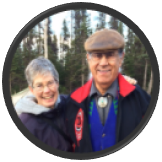
Cheryl Bartlett
Vice-Chair
Cape Breton University (Professor Emeritus), Canada
CRC in Integrative Science (retired); Order of Canada Professor Emeritus, Institute for Integrative Science & Health – Cape Breton University.
Cheryl held a Tier 1 Canada Research Chair in Integrative Science from 2002 until she retired as Emerita in 2012, working closely with Indigenous (Mi’kmaq) Elders on transdisciplinary research initiatives informed by both Western science and Indigenous knowledge and ways of knowing. As an invited Senior Advisor to our Team, she has been instrumental in the development of our proposal. Cheryl was invited to fill the role of Vice Chair for the International Advisory Committee based on her senior advisory status and foundational knowledge of Two-Eyed Seeing – a pillar of the A SHARED Future program.
Website: www.integrativescience.ca
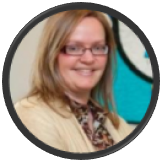 Heather Castleden
Heather Castleden
A SHARED Future Team Lead
Queen’s University, Canada
Canada Research Chair in Reconciling Relations for Health, Environments, and Communities & Director, Heath, Environments and Communities Lab – Queen’s University.
Heather has rich experience in leading/co-leading large teams, including (for example) a recently completed national study on integrative Indigenous and Western Knowledge for Water Research and Management (funded by the Canadian Water Network NCE), involving First Nations, Inuit, and Métis Nations from across the country, and as a Principal Investigator with the multi-million dollar NEAHR Network (Atlantic Aboriginal Health Research Program). She has worked extensively with Indigenous peoples across Canada. She will provide Programmatic administrative and intellectual oversight, lead one Project, co-direct Field Schools, and be ex officio on all Governance Committees.
Twitter: @H_Castleden
 Ron Glass
Ron Glass
Committee Member
University of California, Santa Cruz, United States of America
Professor of Philosophy of Education, Director CCREC- Centre for Collaborative Research for an Equitable California – University of California, Santa Cruz.
Ron focuses his work on education as a practice of freedom and on ideological (trans)formation, giving particular attention to the role of education in developing a just, pluralistic democracy. He also investigates school reform in low-income, racially, culturally, and linguistically diverse communities, and published a book with Pia Lindquist Wong that examines a six-year project that linked school reform in such communities with the transformation of teacher preparation: Prioritizing Urban Children, Teachers, and Schools through Professional Development Schools. Ron will provide an on-site ethics workshop at Field Schools, as well as help develop and share critical approaches to digital media and justice-driven collaborative research. Ron is an invited member of the International Advisory Committee for his expertise in relational ethics and the philosophy of education.
[email protected]; www.ccrec.ucsc.edu
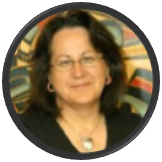 Margo Greenwood
Margo Greenwood
Committee Member
National Collaborating Centre for Aboriginal Health, Canada
Vice President of Aboriginal Health for the Northern Authority; Academic Lead- National Collaborating Centre for Aboriginal Health, British Columbia; Professor- University of Northern British Columbia.
As an established Cree scholar, Margo supports learning opportunities, policy alternatives for achieving strength and wellness in the context of renewable energy, and partnerships to utilize both Indigenous and Western knowledge systems for the A SHARED Future team. In addition to her role on the International Advisory Committee, she also serves on the Knowledge Translation Committee, and participates in annual events and activities, teleconferences and field schools, and collaborates on publications to be distributed through NCCAH. Margo is an invited member of the International Advisory Committee based on her experience in the Indigenous health realm.
 Sarah Harney
Sarah Harney
Committee Member
Native Women’s Association of Canada
Pathways PEKE Project Coordinator, Native Women’s Association of Canada.
Sarah is one of two Sex and Gender Co-Champions (Jeff Masuda) for the A SHARED Future team. She is an Anishinaabe researcher, with experience in program management, community-based research, and culturally-relevant gender based analysis. She is currently managing the Pathways PEKE program at the Native Women’s Association of Canada, and is one of the two sex/gender champions on this project. She is interested in how decolonizing our relationships with the land, can play a role in revitalizing the connection between land, culture, health and gender for Indigenous peoples. She is looking forward to helping advance culturally-relevant gender based analysis across the various a SHARED future projects. Sarah is an invited member of the International Advisory Committee based on her experience in Indigenous health, particularly in consideration of culturally-relevant sex and gender-based analyses.
 Chris Henderson
Chris Henderson
Committee Member
Lumos Clean Energy, Canada
President, Lumos Clean Energy.
Chris is a Clean Energy Advisor. He has offered his 20/20 Catalyst program as a Project for our program, which includes sharing key messages from between programs, and pairing research program trainees with his Catalysts and Mentors. In addition to serving on the International Advisory Committee, Chris’ main role will be to participate in knowledge translation activities (sharing findings across networks, contributing to special journal issues on topic, and speaking at academic events). Chris is an invited member of the International Advisory Committee due to his experience in renewable energy, and working with communities on small-scale initiatives.
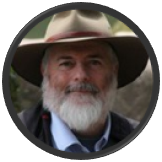 Richie Howitt
Richie Howitt
Committee Member
Macquarie University, Australia
Professor, Acting Head of Department, Department of Geography and Planning – Macquarie University.
Richie’s work on Native Title has integrated consideration of legal and social issues into consideration of reconfiguring various administrative and planning systems to allow statewide recognition of Native title as a basis for transforming Aboriginal participation in the processes of governance in that state. This work is widely seen as taking the lead in a new approach to resolution of cultural and racial conflict over native title. Richie is an invited member of the International Advisory Committee based on his experience in Native title negotiations in South Australia.
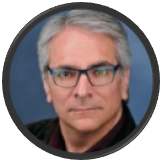 Jay Johnson
Jay Johnson
Committee Member
University of Kansas, United States of America
Jay joined the A SHARED Future team as a result of his research interests in the broad area of Indigenous peoples’ cultural survival – specifically in regards to the areas of resource management, political activism at the national and international levels and the philosophies and politics of place which underpin the drive for cultural survival. Jay is an invited member of the International Advisory Committee based on his experience in environmental and Indigenous research.
 Kim Matheson
Kim Matheson
Committee Member
Carleton University, Canada
Research Chair in Culture and Gender Mental Health, Jointly held at The Royal’s Institute of Mental Health Research and Carleton University (Neuroscience).
Kim’s scholarship area includes health, with a particular consideration of culture and gender – both of which are integral facets of A SHARED Future. She will also offer opportunities for network and knowledge exchange through her multidisciplinary team of researchers working on a newly-funded SSHRC Partnership Grant on Indigenous youth resilience and prosperity. Kim is an invited member of the International Advisory Committee based on the close alignment of her scholarship and the program’s objectives of health equity and community-led approaches to achieving positive change.
Website: carleton.ca/diversity
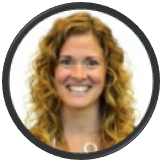 Michele-Lee Moore
Michele-Lee Moore
Committee Member
Stockholm Resilience Centre, Sweden
Researcher, Stockholm Resilience Centre; Associate Professor, University of Victoria.
Michele-Lee’s research seeks to build and mobilize knowledge about social innovations – ones that allow us to transform and build positive paths towards social-ecological-cultural resilience. Primarily, she has focused on topics of transnational and local water governance, social innovation, and transformation. In each of these domains, she has aimed to build new theoretical constructs and conduct empirical case study analyses, as well as undertake projects that begin to bring these fields together. However, beyond her water governance research, she also collaborates with scholars to examine case studies in other domains to gain insights on social innovation and transformation. Although typically based in Victoria, Michele-Lee is currently a visiting scholar with the Stockholm Resilience Centre in Sweden. Michele-Lee is an invited member of the International Advisory Committee based on her experience in natural resource governance and resiliency research.
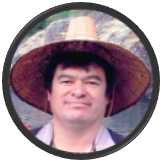 Gordon Planes
Gordon Planes
Committee Member
Chief, T’Sou-ke Nation, Canada
Chief & Solar Director – T’Sou-ke First Nation.
Chief Planes has offered the T’Sou-ke Nation as a Project site for the program given its existing involvement in Indigenous-led solar energy development. He has also offered to co-host a field school and annual gathering for the program to strengthen the knowledge base of T’Sou-ke and other First Nations. In addition, T-Sou-ke Nation will connect community Elders, youth, and intersectoral partners with the project. Chief Planes is an invited member of the International Advisory Committee due to his experience in championing T’Sou-ke Nation in renewable energy, and becoming the first Indigenous Solar City in Canada.
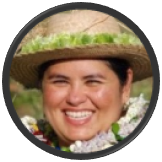 Renee Pualani Louis
Renee Pualani Louis
Committee Member
University of Kansas, United States of America
Affiliate Researcher, Institute of Policy and Social Research, University of Kansas.
Renee joins the A SHARED Future team as a Hawaiian woman and an Indigenous cartographer passionate about Hawaiian storied place names, cross cultural ethical research standards, and advocating the integration of Indigenous spatial knowledge systems with Western geosciences. She believes that Indigenous wisdom has long held steadfast in the margins of society. Elders have watched in silence or were silenced as consumer driven economics ravaged lands, waters, and skies. Academia and science has played an active role in ensuring the knowledge of our ancestors remained ghostly whispers. It is time to bring Indigenous voices front and center. It is time to move beyond the politics of science where recognizing those realities that lie beyond the realm of our senses is not a debate about belief systems, so much as an examination of alternative methodologies. It is time to acknowledge the multiplicity of experiences that contribute to our understanding of the world in which we live. Renee is an invited member of the International Advisory Committee based on her research on Indigenous experiences and the synergies between her work and Two-Eyed Seeing.
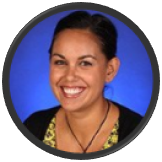 Naomi Simmonds
Naomi Simmonds
Committee Member
Waikato University, New Zealand
Lecturer & Senior Researchers, Waikato University.
Naomi is an invited member of the International Advisory Committee, she will share high-level expertise on program objectives from the New Zealand context. She has committed to reviewing and commenting on team updates throughout the year, and will attend one in-person meeting (i.e. Field School, National Gathering, or Team Meeting). Naomi is an invited member of the International Advisory Committee based on her experience in gender and Maori environmental research.
 Peter Sly
Peter Sly
Committee Member
University of Queensland, Australia
Professor, University of Queensland; Director, Children’s Health and Environment Program; Director, WHO Collaborating Centre for Children’s Health and Environment.
Peter is the Director of both the Children’s Health and Environment Program, and the WHO Collaborating Centre for Children’s Health and Environment. He is a NHMRC Senior Principal Research Fellow and a paediatric respiratory physician with extensive research experience in respiratory physiology, developmental immunology and children’s environmental health. Peter joins the A SHARED Future team as the chairman of the board of directors for the Pacific Basin Consortium for the Environment and Health, and has offer this consortium as a Knowledge Translation opportunity for our program. Peter is an invited member of the International Advisory Committee based on his experience in environment and health research.
 Lisa te Heuheu
Lisa te Heuheu
Committee Member
Environmental Consultant, New Zealand
Independent Consultant; Director, Te Wai Māori
Lisa’s experience as a Māori environmental consultant will provide the program with rich expertise related to Indigenous natural resource management, planning, policy, and research in the Aotearoa/New Zealand context. This will provide an opportunity for international knowledge exchange of cross-cultural natural resource management strategies. Lisa is an invited member of the International Advisory Committee based on her experience in environment and health research.